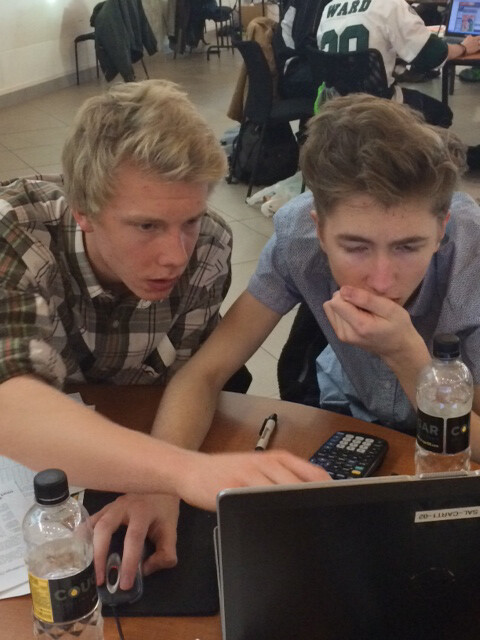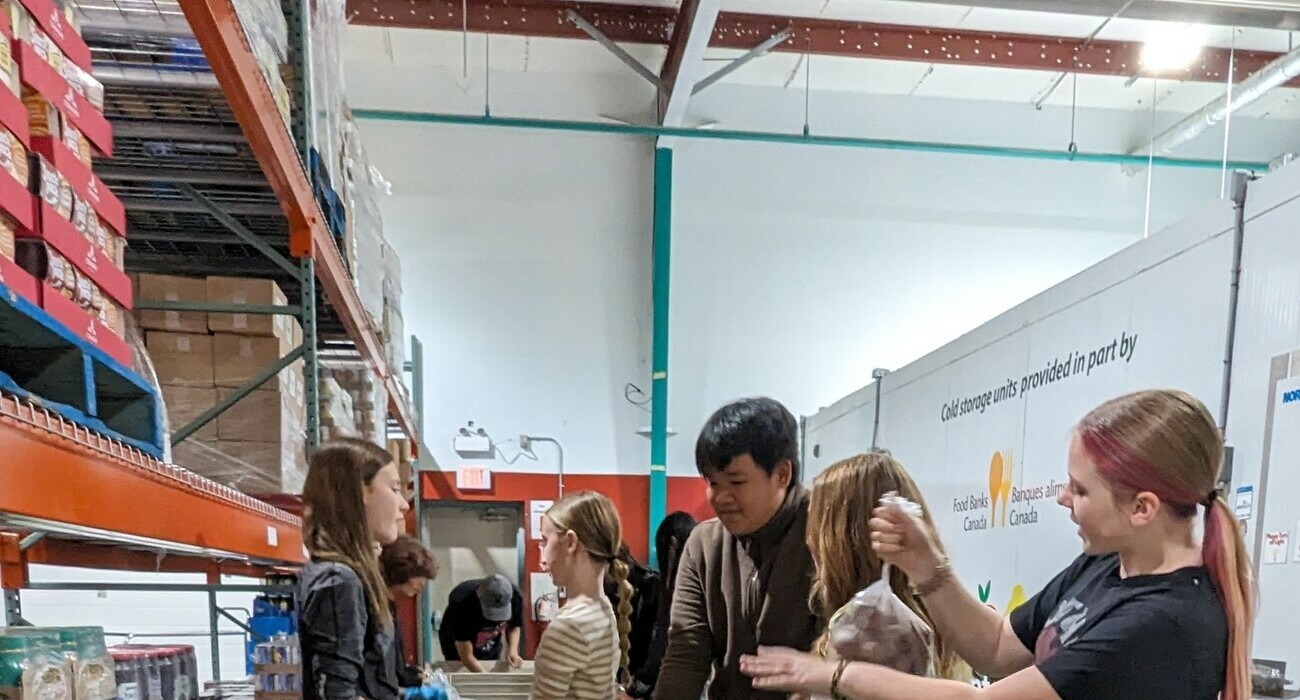
Experience was amazing for teacher and students
Nine students from Calgary Christian Secondary learned first-hand the ups, downs, risks and rewards of working in the oil and gas industry this week.
Three teams of three joined about 300 other students in the PetroChallenge Canada 2014, an event that teaches students everything from how to read geological surveys to negotiating leases and investing profits.
Facilitated by an international team of experts, students are taught theory then let loose on OilSim, a computer simulation initially created by an oil company to train employees and later modified for students.
“As an educator, it was the best for learning outcomes I’ve ever seen,” said Calgary Christian teacher David Westra. “It was amazing. . . I can’t do it justice explaining it. I’d encourage other teachers to go and see what’s possible.”
He said students were active and engaged all day in running their oil companies. They had to work together as a team, but also learn how to negotiate with other teams as they sold off parts of their company or invested in others. Aside from being judged on their company’s profitability, each team could earn “credibility points” for investing profits in ways that would contribute to the community, through research facilities or other efforts.
Each team had two computers running at all times, as they identified drill sites and grew their companies.
“You have to make deals and negotiate with other teams, using the language of the oil business to do the negotiation,” Westra said.
The students earned one Career and Technology Studies (CTS) credit during the competition. Students can compete in up to three PetroChallenges, held annually, earning up to five credits over time.
Experience not just for math, science wizards
While the competition has an appeal to students with strong math and science skills, it would also be beneficial to students who aren’t on an academic track. Westra said one of his students was outstanding in the competition because he displayed a knack for negotiation. One teacher whose team has won past events and gone on to compete internationally shared advice with Westra that each team needs a communicator, a data analyst and a mathematician.
Andrew te Linde, a Grade 11 student who was part of team “Lime Corp,” described PetroChallenge as a “100 per cent unique” and exceptional learning opportunity.
“I have never been so engaged,” he said. The key was the theory being learned was immediately put into practice in a real-life simulation.
Calgary Christian had never participated in PetroChallenge before. The students went in unsure of what to expect. While the facilitators “blazed through a lot of information,” te Linde said they’d broken the information down into sections, each followed by specific challenges so students could practice what they’d learned.
“It wasn’t overwhelming,” te Linde said.
“They learned in two hours what would have taken me two weeks,” agreed Westra.
Although he spent the past couple of years exploring a potential career in pediatric medicine, te Linde returned from his PetroChallenge experience seriously considering a career in the oil and gas industry, perhaps as a geophysicist. He enjoyed reading two-dimensional seismic data, analyzing gravimetric and magnetism information, considering fault lines and cap rock – to find the best spots for a quick return on investment or locations that would produce long term.
Even if he doesn’t pursue a career in the industry, te Linde said he has a deeper understanding and better appreciation of the industry that drives so much of Alberta’s economy, and he’d encourage other students to attend if they get the opportunity.
The simulation gave students a sense of the broad range of career opportunities involved, from landsmen to engineers, said Westra. The simulations were excellent in that they weren’t too difficult or too easy. Students had opportunities to fail and then learn from the experience, one of the benefits of game-based learning, he said.
“They can fail in a game without consequence,” Westra said. “In a classroom, kids may be afraid to fail, but they all understand that they can fail in a game.”
Team wins sportsmanship award
Students were constantly talking about how they could improve their companies’ fortunes. One of the Calgary Christian teams rose from 27th rank to finish 11th. Two other teams finished 10th and fifth overall. For first-timers, all the teams did exceptionally well.
Perhaps best of all, te Linde and his Lime Corp teammates won a sportsmanship award, receiving high-end headphones for their consistently respectful exchanges with facilitators and other teams.
Westra said he was proud of his students. The award wasn’t for cheering on other teams. The students didn’t have time for that. Instead, it was the way they conducted themselves in every interaction, speaking “directly, politely, and they were never abrupt.”

